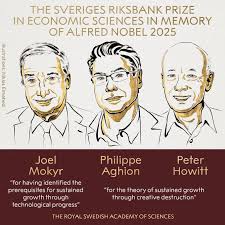Exploring the Contributions of Joel Mokyr in Economic History

Introduction
Joel Mokyr, a prominent economic historian, has made significant contributions to our understanding of the impact of technology and innovation on economic growth. His insights are invaluable for policymakers, scholars, and anyone interested in the forces that shape economic development. As we navigate an era marked by rapid technological advancement, Mokyr’s work remains highly relevant.
Key Contributions
Mokyr’s research primarily focuses on the Industrial Revolution, examining how the interplay of ideas, culture, and technology spurred an unprecedented economic transformation in Europe. His seminal works, such as ‘The Lever of Riches’ and ‘The Enlightened Economy,’ argue that the age of enlightenment played a crucial role in fostering an environment conducive to innovation. Mokyr emphasizes the importance of scientific knowledge and its diffusion as vital components in encouraging technological progress.
Current Relevance
As the world faces challenges such as climate change and economic inequality, Mokyr’s theories on innovation and progress are more significant than ever. He argues that understanding the past can provide crucial insights into how to harness technology for contemporary issues. Recently, Mokyr has been vocal about the potential of green technologies and how innovation can drive sustainable economic growth. His perspective is particularly pertinent given the current global focus on environmental sustainability.
Conclusion
In conclusion, Joel Mokyr’s work offers essential insights into the relationship between technology, culture, and economic development. His analysis of historical economic patterns can yield valuable lessons for today’s policymakers and business leaders. As we continue to navigate through rapid technological changes, Mokyr’s emphasis on the interplay of innovation and societal context will guide future economic strategies. Understanding his contributions is crucial not only for historical context but also for shaping policies that address current and future challenges in the global economy.









